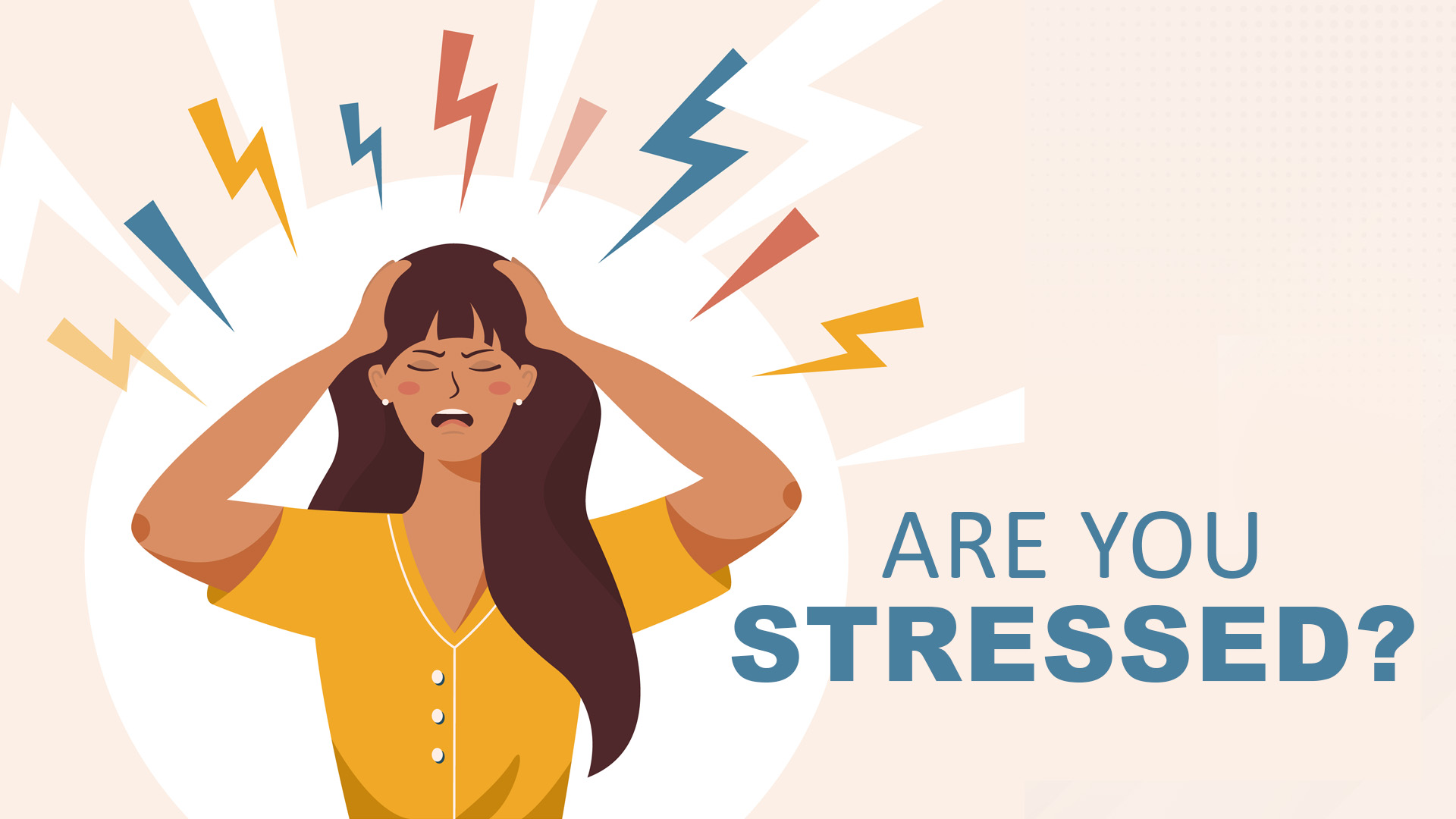Many people are stressed every day in today’s world, full of distress and difficulties. But sometimes, this stress becomes a bit too much, and our body and brain let us know that we are stepping over the line. Let’s explore the different signs of stress and what you can do to relieve those symptoms.
Before it all, it’s always important to pay attention to your body. Sometimes, just working with the signs and symptoms won’t be enough. Often, you might need to resolve the underlying cause to ensure that stress is not hurting you all the time.
Muscle tension
Muscle tension is a first sign of stress. You can often find tension in your neck, back, shoulders, jaw, but some people feel tension in other muscle groups as well. This tension sometimes becomes very habitual, so it’s useful to ask yourself at several points during the day whether there is tension in the usual places.
You can use progressive muscular relaxation to cope. This strategy involves tensing and then relaxing your muscle groups in order, usually going from your feet to your head. Breathe deeply as you tense and relax your muscles.
Fatigue
Fatigue can be a sign of stress. This is especially true when you feel too fatigued or tired even after waking up. An exhaustion that is out of proportion to the effort is often a sign of excessive stress.
You can set aside times to recharge. Make sure to take frequent breaks. Another important way of coping with fatigue is improving your sleep, both in quantity and quality. However, here stress can lead to more issues, because the next sign of stress is linked to rest.
Poor sleep
Sleep issues often show up when there is excessive stress. When you can’t sleep, feel tired in the morning, wake up during the night, or have other disturbances that affect your sleep in a negative way.
This aspect of stress is particularly harmful because a lack of restful sleep hits the body hard. This can make us experience even more stress and, as a result, greater sleep disturbances. So it all becomes a vicious cycle.
A good tip for dealing with this aspect of stress is to try and go to bed at roughly the same time every day and rise at the same time as well each day, including weekends. This is a great strategy to enhance our sleep quality and ensure we do not spend a while tossing and turning before being able to fall asleep.
Brain fog
Brain fog is a state where we find it hard to focus. It’s what we might experience after an all-nighter, kind of like our mind is losing focus. Brain fog suggests that something is not going well and that stress is pulling our cognitive resources away from other tasks.
Brain fog can improve with enough sleep and also with good nutrition. A strategy for working with brain fog is organizing and structuring our work when we feel better and managing our energy levels so that the hardest work falls to the time we have the most concentration.
Frequent headaches
Stress can manifest with headaches, as well as muscle pains, stomachaches, and other aches without a clear physical cause. These can feel in particular spots, for example, a headache in the temples or appear after difficult days.
A good way to manage is to drink enough water and practice relaxation throughout the day. Small breaks for breathing exercises and moments of rest can help reduce the pains associated with stress. If the pain is very intense or frequent, it’s important to seek out medical help.
Digestive issues
When we are stressed, the body might have a harder time doing its digestion properly. This can lead to indigestion or stomachaches or nausea, as well as other symptoms.
You can make sure that you take your lunch breaks away from the desk and have some time to disconnect from work and relax. Try to make all your meals a space free of distractions and stress as much as you are able. Avoid gadgets and social media as you eat, instead focus on the food and eat mindfully.


